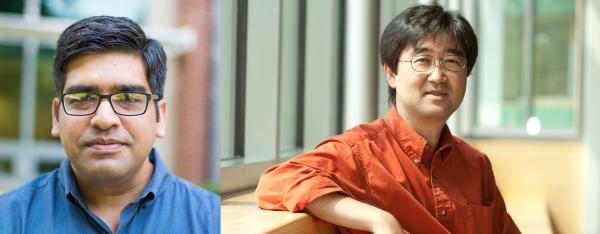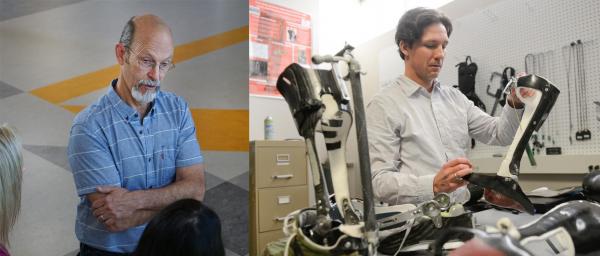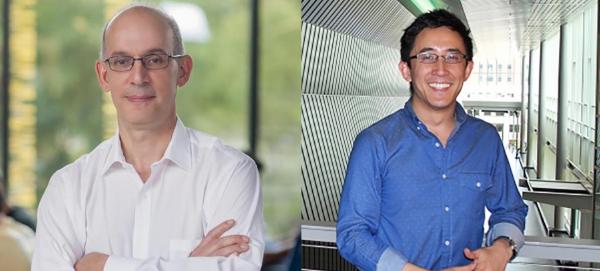Three pairs of interdisciplinary researchers have been awarded 2019 Petit Institute Seed Grants.
The program annually pairs two researchers from the Petit Institute as co-principal investigators, providing early stage funding opportunities that serve as a catalyst for bio-related breakthroughs.
The teams and their projects are:
Vinny Agarwal (assistant professor, School of Chemistry and Biochemistry) and Shu Takayama (professor, Wallace H. Coulter Department of Biomedical Engineering at Georgia Tech and Emory) are working on a project called, “Marine bromine bleach bomb net to fight pseudomonas aeruginosa,” which is an aggressive pathogen that has high antibiotic resistance. Infections caused by P. aeruginosa usually occur in people in the hospital or weakened immune systems, and they can be deadly. Agarwal and Takayma are joining forces to develop new interventions to treat this and other antibiotic resistant pathogens.
Greg Sawicki (associate professor, Woodruff School of Mechanical Engineering) and Tim Cope (Coulter Department of Biomedical Engineering) submitted a project called, “Modifying musculotendon neuromechanics to improve proprioception in aging.” Through their research into understanding the interaction between biological and engineering systems, the Sawicki-Cope team plans to develop a roadmap for designing better exoskeleton controllers that may improve mobility in aging by restoring proprioception.
Gabe Kwong (assistant professor, Coulter Department of Biomedical Engineering) and M.G. Finn (professor, School of Chemistry and Biochemistry) have a project called, “Activity biosensors that implement Boolean logic as precision diagnostics for immunotherapy.” The researchers reason that disease detection and evaluation of treatment responses in vivo depend on the ability to extract clinically useful information from complex biological systems. Noting that previous work in biological computing led to the use of genetic and cell-based tools, they propose that developing programmable biomaterials to perform basic computations, such as Boolean logic, may provide a new framework to increase detection precision and resistance to biological noise.
The Petit Institute Seed Grants provide year-one funding of $50,000 with equivalent year-two funding contingent on submission of an NIH R21/R01 or similar collaborative grant proposal within 12 to 24 months of the year-one start date (July 1, 2019).
Media Contact
Jerry Grillo
Communications Officer II
Parker H. Petit Institute for
Bioengineering and Bioscience
Keywords
Latest BME News
Jo honored for his impact on science and mentorship
The department rises to the top in biomedical engineering programs for undergraduate education.
Commercialization program in Coulter BME announces project teams who will receive support to get their research to market.
Courses in the Wallace H. Coulter Department of Biomedical Engineering are being reformatted to incorporate AI and machine learning so students are prepared for a data-driven biotech sector.
Influenced by her mother's journey in engineering, Sriya Surapaneni hopes to inspire other young women in the field.
Coulter BME Professor Earns Tenure, Eyes Future of Innovation in Health and Medicine
The grant will fund the development of cutting-edge technology that could detect colorectal cancer through a simple breath test
The surgical support device landed Coulter BME its 4th consecutive win for the College of Engineering competition.










